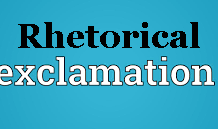Institution
Institution | Institution Meaning Example Explanation
Institution: Meaning
(Noun)
An institution refers to an established organization, system, or structure that serves a specific purpose within a society. It typically embodies norms, values, and rules that guide behavior and interactions among individuals, contributing to social order, stability, and cohesion.
Institution: Example
A university is an example of an institution that plays a crucial role in higher education. It provides academic programs, research opportunities, and resources to students, faculty, and staff, fostering intellectual growth, innovation, and knowledge dissemination. Universities also serve as cultural hubs, promoting diversity, critical thinking, and community engagement.
Institution: Explanation
Institutions are foundational elements of society, shaping social, economic, and political processes and influencing individual behavior and collective outcomes. They encompass a wide range of organizations, systems, and structures that fulfill essential functions and roles within communities.
Types of Institutions:
Institutions can be classified into various types based on their functions and purposes. Examples include educational institutions (schools, colleges, universities), governmental institutions (legislative bodies, regulatory agencies), financial institutions (banks, credit unions), religious institutions (churches, mosques, temples), healthcare institutions (hospitals, clinics), and cultural institutions (museums, libraries, theaters).
Roles and Functions:
Institutions perform essential roles in society, such as providing education, maintaining law and order, facilitating economic transactions, preserving cultural heritage, and promoting social welfare. They establish norms, rules, and procedures that govern behavior and interactions, ensuring predictability, stability, and accountability within communities.
Institutional Change:
Institutions are not static entities but evolve over time in response to changing societal needs, values, and conditions. Institutional change may occur through reforms, innovations, or revolutions, leading to shifts in policies, practices, and power dynamics within organizations and systems.
Institutional Theory:
Institutional theory examines how institutions shape individual and organizational behavior and influence socio-economic outcomes. It explores the origins, functions, and impacts of institutions on society and emphasizes the role of institutions in shaping human interactions, perceptions, and choices.
Overall, institutions are fundamental building blocks of society, providing structure, coherence, and order to human communities. They embody collective norms, values, and aspirations, serving as pillars of social organization and governance while facilitating cooperation, coordination, and progress across diverse domains of human activity. 0 0 0.
Some Books For Students
- Advertisement Writing
- Amplification Writing
- Note Making
- Paragraph Writing
- Notice Writing
- Passage Comprehension
- The Art of Poster Writing
- The Art of Letter Writing
- Report Writing
- Story Writing
- Substance Writing
- School Essays Part-I
- School Essays Part-II
- School English Grammar Part-II..
Books of S. Story by M. Menonimus:
- The Fugitive Father and Other Stories
- The Prostitute and Other Stories
- Neha’s Confession
- Juvenile Stories and Essays
Books of Biography by M. Menonimus:
- The World Writers-Brief Biographies
- Introduction to World Writers
- Introduction to World Personalities
- Love of Reputed Persons
- Brief Biographies of Prominent Bengali Writers
- Brief Biographies of Eminent Monarchs
- Brief Biographies of Ancient Thinkers and Writers
- Brief Biographies of Eminent Generals and Conquerors
- Biographies of Writers Around the World
- Introduction to Men of Letters ..
Books on Linguistics by M. Menonimus:
- A Brief History of the English Language
- Essays on Linguistics
- My Imageries
- Felicitous Expression: Some Examples
- Learners’ English Dictionary
Books of Literary Criticism by M. Menonimus:
- World Short Story Criticism
- World Poetry Criticism
- World Drama Criticism
- World Novel Criticism
- World Essay Criticism
- Indian English Poetry Criticism
- Indian English Poets and Poetry Chief Features
- Emily Dickinson’s Poetry-A Thematic Study
- Walt Whitman’s Poetry-A Thematic Study
- Critical Essays on English Poetry
- Tawfiq al-Hakim’s Novel: Return of the Spirit-An Analytical Study
- Tawfiq al-Hakim’s Novel: ‘Yawmiyyat Naib Fil Arayaf’-An Analytical Study
- Analytical Studies of Some Arabic Short Stories
- A Brief History of Arabic Literature: Pre-Islamic Period (500 AD-622 AD)
- A Brief History of Arabic Literature: Early Islamic Period (622 AD-661 AD)
- Reviews on William Shakespeare’s Works
- Reviews of Charles Dickens’ Works
- Reviews of John Milton’s Literary Works
- Reviews of Some Iconic Travelogues
- Shakespeare’s Sonnets-Critical Studies
- Analytical Studies of Selected Poems of Sarojini Naidu
- Analytical Studies of Selected Poems of Rabindranath Tagore
- Analytical Studies of Selected Indian English Poems
- Reviews of Selected Motivational Books
- Origin Evolution & Functions of Literature
- Essays on Shakespeare and His Time











